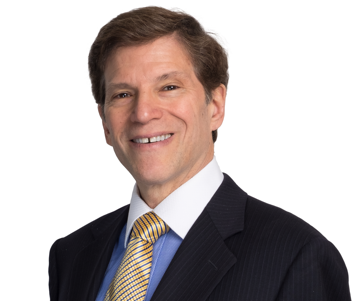Deciding to Retire: 2 Main Benefits of Retired Life
Pennsylvania Capital Management

Are you deciding to retire? I’m often asked: “Why retire at all?” I never want to retire. As my dad used to say, “I hope they carry me out in my boots–and I was working the day before.” I think what I do is so exciting that I want to continue doing it as long as I’m mentally and physically able.
Going back to the question, I could see a compelling case to retire if you had so many other projects you wanted to do. Or, if you had already done a lifestyle assessment of what you could afford based on your level of savings and your degree of success in your investing, that would make sense. But, I wouldn’t call it retirement. I’d call it a new life or a new lifestyle.
If you are deciding to retire, start by thinking about your mindset. I think a new lifestyle could be as exciting as what you had before–you just decided to change venues. Unfortunately, many people are looking for a chance to hang out, chill out, and take it easy. They’re the ones that give the Grim Reaper that unfortunate advantage. Therefore, I would encourage each of you to skip that part.
If you’ve got a great reason to do other things, you’ve got a full and rigorous life plan, and you can afford it, awesome.
If not, then it’s a good idea to meet with your favorite fiduciary financial advisor, someone who has a great amount of experience figuring out what all those moving pieces are and help you come to a proper determination of what’s reasonable, what you can afford, and what you can’t afford.
Too often, people underestimate what it’s going to cost to successfully retire or live off their assets.
Yes, I know all about Social Security and Medicare payments and how they help. However, in our experience, they’re only helpful in a few cases.
Do they pay all your bills? That’s the way you should look at these programs. There is support to reward you and benefit you because you’ve paid into the Social Security system for many, many years. In that way, the government is there to provide some support. However, I would advise you to look at these support systems as tools along with your pension, 401K, personal savings, and any other income-generating assets if you decide to retire. Everything should be taken into account.
For that, get with your favorite fiduciary financial advisor. These professionals have the experience you may lack and also some objective vision to bring to you, which is worth plenty. You should take full advantage of working with these individuals as you prepare for major life changes.
Think about it this way: As you prepare for those life changes, you want to know exactly what you’re getting into before you say no to more income from your former employer. You want to test it. You want to review it from a variety of inflation perspectives. You want to look at the current tax brackets and, historically, where taxes have been so you can get a clear view of how the whole picture fits together. To accomplish this, consult with a proper, trusted fiduciary financial advisor.
When people do retire in a “traditional” sense, they typically do so for two reasons:
I still think everyone should redefine how they look at retirement and find ways to balance everything in a cohesive, healthy manner–but the allure of freedom of time and less stress is a Siren’s song. I’m here to tell you that you can have both. Even better, you can achieve a less stressful life and enjoy greater freedom and control over your time without retiring to the couch forever. Let’s dig into it.
In our “retired to the couch” scenario, the motivation for living this kind of sedentary lifestyle in retirement was likely born out of someone’s need for freedom of time. Working for 40 (or more) years, punching a clock every day, and having limited time for vacations, holidays, sick days, or personal days can make someone feel like they’ve already sacrificed a lot of their time. Our youth–for better or worse–is often spent working a job, to some extent. We raise families. We’re busy. Finally, we get to breathe a sigh of relief because now we don’t have to be busy… unless we want to be. Of course, I think having a busy, active lifestyle is the healthiest route, but if you’re someone who wants freedom of time, you may want to have some level of retirement.
Conversely, too much freedom of time away from working and generating income in some capacity (unless you’ve planned for it) can put you under a lot of financial stress. And financial stress–like any other stressor–takes years off your lifespan.
Financial stress is a big issue many people share in retirement that I’ve heard about in my more than 30 years of interviewing and working with people planning to retire. I find that financial stress–and fear of it–is a big concern among people who are worried about running out of money. I think the key to overcoming this fear is planning. There’s no way around it.
Yes, Social Security will help, Medicare will be a support, and your pension will be much appreciated and used in retirement–but a good plan goes far beyond relying on those basics. I encourage you to meet with your favorite fiduciary financial advisor and look at anything that could potentially cause you financial stress.
It’s coming, and the longer you live–and the better you are at improving the quality of your life–the longer your hard-earned money has to last. If you want to look beyond that and value being able to leave a legacy for your kids or donate to your favorite charities regularly, that money has to be even more flexible. It has to go further–and it’s your job to figure out how.
In my experience, our clients consider those to be important priorities. Fortunately, these elements are something your fiduciary financial advisor can help you figure out.
It’s no secret that stress is a killer. To a lot of people, retirement looks like a life of leisure. You’re traveling, you’re carving out the time you want for the things you care about, and you’re living life on your terms at long last.
But don’t be too relaxed. Remember, our bodies and minds need to be active. Humans are social creatures. It’s important to strike a balance between the daily grind that may have contributed to your overall stress level and a life that starts to descend into boredom and, worse, a lifestyle so relaxed that you never leave the house.
Relaxation doesn’t mean laziness; I encourage you to think about how to enrich your life in a way that feels stress-free even if you’re working.
When you are in the process of deciding to retire, find a hobby you can monetize. Develop a new skill that excites you (and can be profitable). Get more serious about your investments. You’ve got plenty of options. Now is the time to embrace what drives you and make the most of this time you’ve freed up for yourself.
If you are deciding to retire, think about what could come to foil your plans. Currently, we are dealing with tumultuous inflation rates, which might be situated at a high percentage for a while. You also have to consider changes in government regulations that might affect you, such as changes in the tax structure, wars, or other kinds of global events that could upset what you thought you needed in terms of your financial plan.
You need backup systems. You need a proper liquidity reserve.
For most people, six to 12 months is a good liquidity reserve. However, in your situation, you may find you need more because you have an ailing mother-in-law or someone else who needs you. Maybe you want to donate more to your church, synagogue, or other charities that are important to you and have been an important part of your commitment to yourself and your family.
Here’s where planning comes into the mix: In many cases, you might have a child or all of your children who want to help with making those charitable deductions. We have clients who set up private foundations and put their kids on the board as directors so they need to interact. They need to figure out where they pay out that 5% or thereabouts to charities.
In our client’s case, their children picked out the charities each year and changed them yearly. They get up at their annual board meetings and tell the story of why they selected each charity, how they chose it, and why it is important to them. This meeting also gives the family a chance to be together and have meaningful conversations about how to do good in the world.
Look, we’re strong advocates of doing good in the world, helping people, and making a difference. Setting up a private foundation might be a good choice for you and your family to consider.
Yes, there are some expenses and this method requires ongoing administration and tax returns. However, I urge you to think about the continuity and the enjoyment your family will gain from making a difference in the world together as a unit.
Everyone is unique. If you are deciding to retire, you need to look at your unique circumstances to inform every big decision you make.
The client case studies you read earlier featured extremely different people looking for different things out of life. The financial stresses are there for all of us, just like many of us have individual health issues that we must cope with on our own, usually by following a treatment plan that is customized for us. Each person’s body is different–but it is not unique in the sense that planning is necessary for you to be a success. Everyone has a body, just like everyone needs a plan.
I want to see you succeed. Simply put, if you wait until 12 or 24 months before deciding to retire, then it’s too late.
It’s not that you can’t catch up, and it’s not that you can’t take steps to better your financial situation after you’ve retired. However, in my 30-plus years of experience, I find it works so much better for people when they take these essential steps way ahead of time and meet with fiduciary advisors to help them lay it all out.
Ideally, you want to test it and make sure it’s bulletproof to ensure you can afford to do what you want. If you think about it, then you’ll discover that you’ve gained the comfort and confidence of knowing it will work since you’ve checked it and tested it repeatedly. Deciding to retire becomes much easier when you have a plan and trust that your plan will accomplish everything you’ve hoped and dreamed it would.

In 1995, Irvin Schorsch founded Pennsylvania Capital Management with the entrepreneurial vision to build a firm centered on the client first and foremost, and to help people crystallize their thinking about the future of their lives and financial goals.